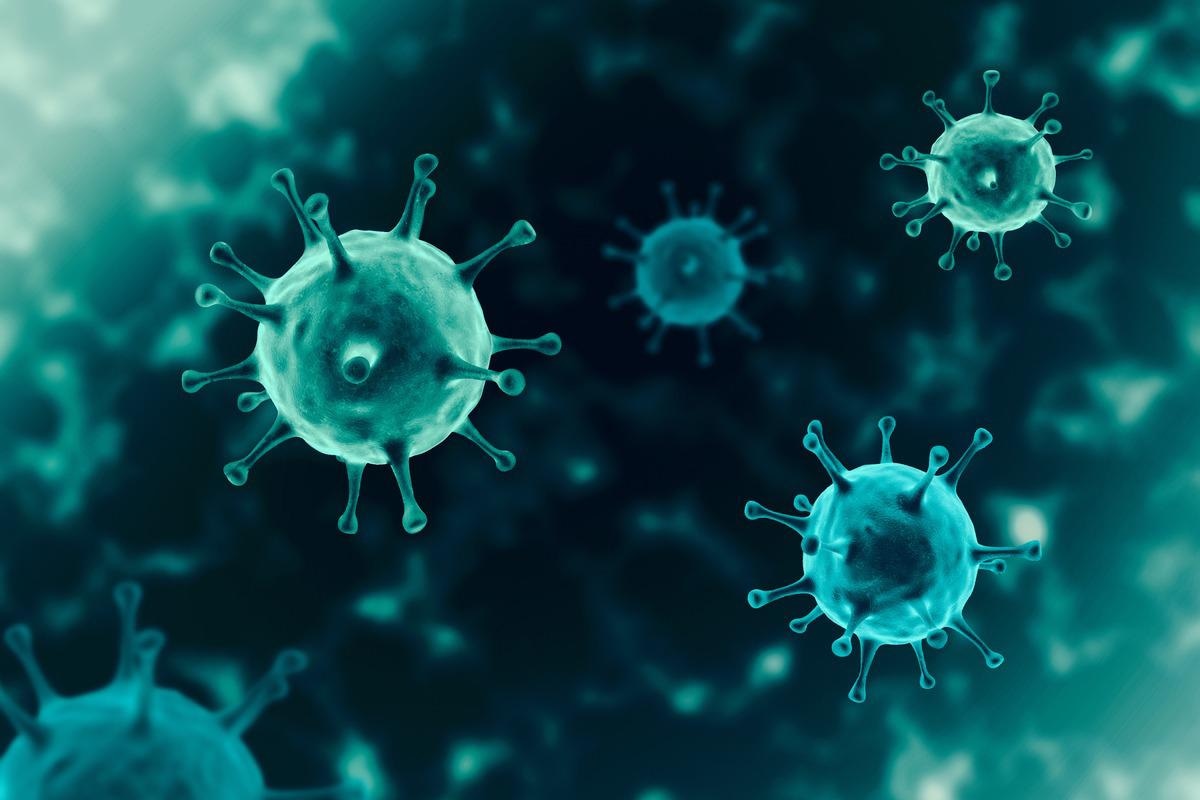The severe acute respiratory syndrome coronavirus 2 (SARS-CoV-2) first emerged in Wuhan, China, at the end of 2019 – which has caused the current coronavirus disease 2019 (COVID-19) pandemic after its rapid spread across nations.
Nearly 15% of the COVID-19 cases transpire into severe infections necessitating hospitalization and intensive care with assisted respiratory support. The most common severe complication of the disease, that can lead to death, is respiratory failure.
 Study: Proteome-wide Mendelian randomization identifies causal links between blood proteins and severe COVID-19. Image Credit: Nhemz/Shutterstock
Study: Proteome-wide Mendelian randomization identifies causal links between blood proteins and severe COVID-19. Image Credit: Nhemz/Shutterstock
The pathophysiology of COVID-19 involves dysregulated pro- and anti-inflammatory immune responses to the viral infestation. These lead to lung inflammation, damage the alveoli and result in acute respiratory distress syndrome. It is known that an individual’s innate immune response depends on the genetic makeup. Hence, the progression and severity of this disease may differ from the genetic variants carried by an individual.
Understanding such differences may serve the purpose of deciphering the wide spectrum of COVID-19 outcomes in different individuals.
The study
A recent study published in PLOS Genetics was based on Mendelian randomization analyses conducted between high levels of numerous blood proteins and COVID-19. This study aimed to highlight specific proteins associated with the increased risk of hospitalization due to COVID-19. Additionally, proteins associated with the increased risk of respiratory support requirement or death due to COVID-19 among hospitalized patients were also investigated.
Proven causal associations were also determined to help comprehend the innate differences in protein levels that can impact the disease course and to identify the proteins to be prioritized in clinical studies.
The present study entailed a systematic review including 5,305 sets of genome-wide association study (GWAS) summary statistics for biomarkers in blood. Overall, ten publications that used standard GWAS summary statistics quality control metrics, were included. The metrics entailed the extradition of incomplete genetic variants and those with information metrics of below 0.6 and allele frequencies higher than 0.005 or 0.995. European 1,000 Genomes Project dataset was utilized for predicting the allele frequencies. All protein measurements were included from all studies.
For this study, genetic variant-single nucleotide polymorphisms (SNPs) having strong associations with the actual blood protein levels in 5,504 genome-wide analyses of single proteins were selected. Analysis was then undertaken using Mendelian randomization with these genetic loci as proxies for protein levels—to test the probable causal associations of the identified blood proteins with severe COVID-19. At baseline, the Generalized Summary data-based Mendelian randomization (GSMR) was used.
Results
Overall, 3,890 associations were recognized between COVID-19-related hospitalization and outcomes of viral exposure and blood proteins. On the contrary, there were 5,314 associations of blood proteins that correlated to the viral exposure and COVID-19-related hospitalization as the outcome. Overall, there were 15 significant associations. Some proteins were found to have magnanimous associations with the same proteins twice, in different GWASs.
Under assumptions of the Mendelian randomization (MR), the findings seemed to be consistent with the six blood markers that were causally associated with an increased risk for hospitalization due to COVID-19. On reversing the associations – with hospitalization as the exposure and these blood biomarkers as outcomes showed no significant associations.
The standard deviation (SD) increases in the respective blood biomarkers revealed increased odds for hospitalization (7-19%)—with fatty acid amide hydrolase 2 (FAAH2) rendering the strongest effect. Under MR, nine blood biomarkers were found to be significantly causally associated with a decreased risk for hospitalization due to COVID-19. Meanwhile, reversal of these associations generated nonsignificant outcomes. The SD increases in the blood biomarkers with the reducing rates of hospitalization were between 7-20%; here, the platelet endothelial cell adhesion molecule (PECAM-1) expressed the strongest effect.
Additionally, using genetic instruments and under MR the results reconfirmed that hospitalization was causally related to lower levels of macrophage inflammatory protein (MIP1b): beta = -0.16. Furthermore, the results also showed causal associations of the five blood biomarkers with the need for respiratory support/death due to COVID-19. However, the reverse associations with these blood markers as outcomes were found to be nonsignificant.
With blood biomarkers, the increase in likelihood for necessitating respiratory support or suffering mortality ranged from 12-35%. Here, glucosaminyl (N-Acetyl) transferase 4 (GCNT4) had the strongest effect. The results were consistent with the eight blood biomarkers that were causally associated with a significantly reduced risk of the need for respiratory support or chances of death due to COVID-19. The reverse associations were found to be nonsignificant. Under MR, the results supported that respiratory support/death due to COVID-19 could be associated with decreased levels of neprilysin.
Sensitivity analyses confirmed the magnanimous associations between the 14 blood biomarkers and hospitalizations due to COVID-19. Of note, all F-statistics were greater than 20, with the exception of ATP2A3. In addition, all I-squared statistics were found to be above 0.9.
The results also revealed significant associations between ABO_Sun and SFTPD_Breth cis-SNPs and hospitalization, as well as between ABO_Sun and sICAM-1_Sliz cis-SNPs with the need for respiratory support and chances of death, whereas other significant associations were moderated by trans-SNPs.
The findings also depicted that increased levels of GCNT4, C1GALT1C1, RAB14, CD207 and ABO heightened the risk of hospitalization and respiratory support or death due to COVID-19. Additionally, genetic susceptibility for higher BMI correlated to higher levels of SELE_Scal, C1GALT1C1_Sun, SELE_Folk, KEL_Sun, SELL_Sun, RAB14_Sun and SFTPD_Breth.
The results of this study emphasized the utility of applying large-scale MR analyses to identify blood biomarkers that may aid in predicting severe COVID-19. The findings further explain the involvement of adhesion and endothelial dysfunction in severe COVID-19.
The present study identified novel blood biomarkers that correlate to severe COVID-19 phenotype; the results may guide the development of prognostic biomarkers and future therapeutics.